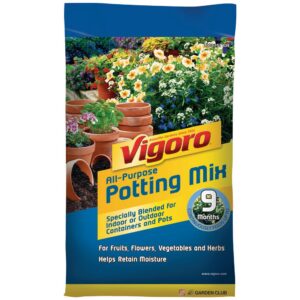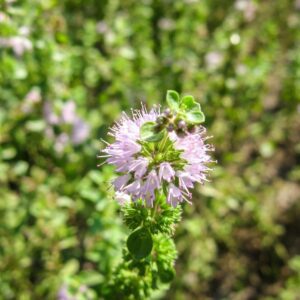The number of microorganisms and nutrients in compost makes it an awesome meal for plants. But for plants to better digest this meal, you can also steep compost in aerated water to create a compost tea solution.
Compost tea is a perfect method to naturally enhance the growth of your plants and, thus, reap greater yields. But, you need to use it appropriately; otherwise, it will become counter-productive. In this article, we will show you how often to use compost tea for the sake of your plants.

Read Next
Benefits
The most obvious benefit of compost tea is that it brings you more convenience. You will agree that adding compost directly to the garden soil, especially a lawn, is sometimes quite troublesome. But, with compost tea, things get much easier because you can apply this nutritious liquid using many horticultural applications.
More importantly, introducing brewed compost tea to your plants helps them grow stronger and larger. Beneficial bacteria are placed on the plants while harmful ones are distanced, thus helping to fight any disease that can potentially threaten the plant.
Besides, applying tea to the soil means enlarging the food web inside the soil. The soil can receive added nutrients and better ventilation with more healthy microorganisms. Therefore, it can absorb more nutrients and retain more water. This is undeniably a benefit for the plants when the roots get healthier and better endure harmful diseases.
How To Make Compost Tea
- Gather your materials: To make compost tea, you'll need compost, water, and a container with a lid. You can use a 5-gallon bucket, a large trash can, or a specially designed-compost tea brewer.
- Add compost to the container: Fill the container with compost, leaving about one-third of the container empty.
- Add water: Fill the container with water, covering the compost completely. If using tap water, let it sit out for a few hours to allow any chlorine to evaporate.
- Mix and aerate: Use a stick or shovel to stir the compost and water. Then, attach an air pump to the container and insert an air stone to aerate the mixture. This will provide oxygen to the microbes in the compost, which will help them multiply and thrive.
- Let it brew: Allow the compost tea to brew for 2-3 days, stirring occasionally and keeping the mixture aerated. During this time, the nutrients and beneficial microbes in the compost will leach into the water.
- Strain the tea: After 2-3 days, use a fine mesh strainer or cheesecloth to strain the compost tea, removing any solids.
- Apply to plants: Dilute the compost tea with water until it's the color of weak tea. You can then use a watering can or a sprayer to apply the tea to the soil around your plants. Be sure to apply it evenly to avoid over-fertilizing any particular area.



How Often To Use
First, it's important to note that the frequency of use of compost tea will depend on your plants' needs and soil quality. In general, it's best to use it as a supplement to a regular fertilization program rather than as the sole source of nutrients for your plants.
A good rule of thumb for using compost tea is to apply it every two to four weeks during the growing season. This will provide your plants with a steady supply of nutrients and help maintain healthy soil biology.
However, you should also monitor your plants closely and adjust your use of compost tea as needed. If your plants show signs of stress or nutrient deficiencies, you may need to increase the frequency of application.
Best Time Of Day To Apply The Compost Tea
The timing of applying compost tea is an important factor to consider to maximize its benefits for plants. In general, it's best to apply it in the early morning or late afternoon when the sun is not as intense, and temperatures are cooler. This helps to reduce the risk of leaf burn or scorching due to direct sunlight.
Applying in the morning or late afternoon also allows the plant leaves to dry before nighttime. Moisture on the leaves at night can increase the risk of fungal diseases, such as powdery mildew, which can damage plants.
It's also important to avoid applying during high humidity or rainfall, which can increase the risk of fungal diseases. If the leaves of plants are wet, it's best to wait until they dry before applying compost tea.
Application Methods
Here are the four application methods we recommend using:
- Watering can: One of the simplest and most popular ways to apply compost tea is to use a watering can. Pour the diluted compost tea into the can and water the base of the plant, being careful not to get the leaves too wet. This method is especially useful for plants grown in pots or containers.
- Spray bottle: A spray bottle can apply compost tea for smaller gardens or individual plants. This method allows you to target the leaves and stems of the plant directly, which can be especially beneficial for foliar feeding.
- Hose-end sprayer: A hose-end sprayer is a convenient option for larger gardens, allowing you to apply the compost tea to a larger area more quickly. Attach the sprayer to your garden hose and spray the diluted compost tea over the plants.
- Backpack sprayer: A backpack sprayer can apply compost tea for even larger gardens or farms. This method is especially useful for crops grown in rows, such as vegetables or fruits.
Table 1: Plant Type & Frequency Of Application
| Plant Type | Frequency of Compost Tea Application |
|---|---|
| Vegetables and annuals | Every 2-3 weeks during the growing season |
| Perennials, shrubs, and trees | Every 4-6 weeks during the growing season |
| Houseplants | Once a month |
| Container plants | Once a week during the growing season |
It's important to note that these are general guidelines, and the frequency of the tea application may vary depending on the needs of your specific plants and soil conditions. It's best to monitor your plants closely and adjust your use as needed to ensure optimal growth and health.
Conclusion
In conclusion, compost tea is a nutrient-rich liquid fertilizer that can benefit plants by improving soil health, increasing microbial activity, and promoting growth. However, using it in moderation is important to avoid over-fertilizing your plants.
A good rule of thumb is to apply compost tea every two to four weeks during the growing season while monitoring your plants closely and adjusting your frequency of use as needed. It's also important to apply compost tea at the right time of day and under the right weather conditions.
By following these guidelines, you can help your plants thrive and enjoy a bountiful harvest while also promoting the health of your soil and the beneficial microbes that live within it.





Edgardo M. Eudela says
Sir Good day, may I ask for the PDF on Rex Compost tea brewer. Compost tea brewing time and microorganisms, I need it for my research,thank you
Rex says
Here is one you can take a look at https://thinglishlifestyle.com/wp-content/uploads/2018/11/Compost-Tea-1.pdf